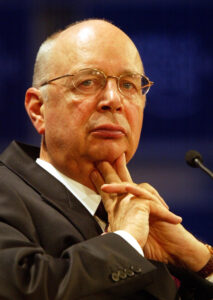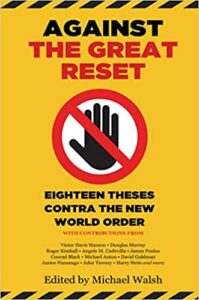Over the last few weeks, Sam Bankman Fried, having been extradited from the Bahamas, flown to California first class, and granted bail on a 250 million dollar bond (which allowed him to sit comfortably in his parent’s Palo Alto home instead of in some grubby jail cell), has now pleaded not guilty to the many charges against him. There’s been some populist indignation over the apparently indulgent terms of his pre-trial detention. But it’s difficult to be too indignant about what is at best a stay of execution.
Most white-collar criminals avoid prison until convicted. By now SBF is probably too famous to make a successful run for it. And given that his two top accomplices, one his former girlfriend, are apparently singing like Maria Callas to the prosecutors, he faces the realistic prospect of several decades behind bars. He might escape justice by committing suicide but that could be justice of a more uncertain kind.

SBF: "Effective altruism" in action.
As for the purely criminal aspects of the fall of SBF and his crypto-currency exchange empire, FTX, Andrew McCarthy, an experienced federal prosecutor, has already established a key point: that FTX frauds had nothing to do with the “opaque” character of crypto-currencies as such but was instead a plain old-fashioned Ponzi scheme. SBF simply diverted crypto funds entrusted to him by investors into his other failing enterprises.
If the “opaque” character of the “crypto” world was irrelevant to the operation of SBF’s fraud, however, it was vital to its social and political success. The crash of FTX should have been easily foreseeable not only by investors but also by the financial pundits, the organizers of financial conferences, the political parties that accepted his massive donations, the business and style pages of the mainstream media, and above all by the corporate global leaders of the World Economic Forum that meets annually at Davos in Switzerland. After all, the company had been offering very high fixed rates of return in a notoriously risky market less than a decade since Bernie Madoff had demonstrated the inevitable collapse of such enterprises.
Yet only weeks before the inevitable happened, SBF was an icon on the style pages of business as well as mainstream media, a panel member photographed alongside former president Bill Clinton and former British prime minister Tony Blair at investment conferences, the second largest donor (after George Soros) to the Democrats in the 2020 campaign, and he was a rising star in the world of the WEF—FTX was touted as a partner on its website, SBF himself was a speaker at its conference last spring, and if the recent unpleasantness had not persuaded the WEF to scrub these references from its website, he was odds-on to be added to their pantheon of Young Global Leaders.
How could the Great and the Good of our world get it so wrong? One reason, of course, is that crashes (both of the system and of particular enterprises) occur at fairly regular intervals because both market participants and official regulators come to share the same intellectual error: usually that, unlike all previous such occasions, the worst won’t happen this time because we know enough to prevent it. The worst then happens.

What's the worst that could happen?
On this occasion the tendency to believe in SBF and FTX was encouraged by the factor mentioned above: namely, the opaque nature of crypto-currencies. A great many people, including “experts,” relied on the general sense that no-one really understood how crypto-currencies worked to justify not investigating how SBF was accomplishing such miracles. If they had done so, they would have discovered—as McCarthy points out—that he wasn’t investing in crypto-currencies but merely acting as the middleman between those who wanted to buy and sell them and, in the course of this modest arbitrage, siphoning off large amounts his customers’ assets to keep his other failing enterprises afloat. But they didn’t investigate what seemed to be a very good thing.
Unfortunately, not looking too closely at something that either benefits you or appeals to your emotions in some way is a very human quality. Just as financial journalists were led astray by the hocus-pocus of SBF’s crypto-economics, so the same result was achieved at a slightly higher level by the hocus-pocus of Modern Monetary Theory. MMT—an agreeable fairy story that governments can print money indefinitely without causing either inflation or any other discernible harm—persuaded some governments, some financial agencies, some business magazines, and even some economists tired of being “grim” all the time, to dismiss the rising fears of rising inflation—until inflation happened and we all have had to tighten our belts.
My own theory is that both trust in FTX and SBF and the inflationary policies of Western governments inspired by MMT spring from the same psychological sources: optimism, market or bureaucratic groupthink, and submission to what G.K. Chesterton called “mystagoguery” or the technical demagoguery of the sophisticated that misleads those too timid to differ with experts or even to question them if something they say smells fishy.

Now on sale.
And, finally, there is the personal factor. SBF presented himself as someone who incarnated all the utopian virtues of the progressive age that the WEF under its founder Klaus Schwab hopes to introduce under the slogan “Build Back Better.” He lived an austere personal life (he didn’t); he was making money to give it all away (he was allegedly stealing it to keep his businesses afloat and to buy political influence); he was putting into practice a sophisticated method of philanthropy called “effective altruism” (about which his guru now confesses to second thoughts); he gave donations mainly to Democrats (noble, idealistic) but also to forward-looking Republicans (the necessary price of virtuous influence); and he had a particular commitment to funding the kind of bureaucratic health-cum-lockdown campaigns that the WEF touts as the vehicle for launching its global post-democratic technocracy under the firm direction of the Great Reset.
You can and should learn more about the Great Reset. In the meantime SBF provides us with a parable that supports its critiques: It’s not hard to build a world of global social equality—steal a billion here, a billion there, and pretty soon you’re talking effective philanthropy.
Article tags: Andrew McCarthy, effective altruism, Klaus Schwab, Modern Monetary Theory, SBF, The Great Reset, WEF, World Economic Forum